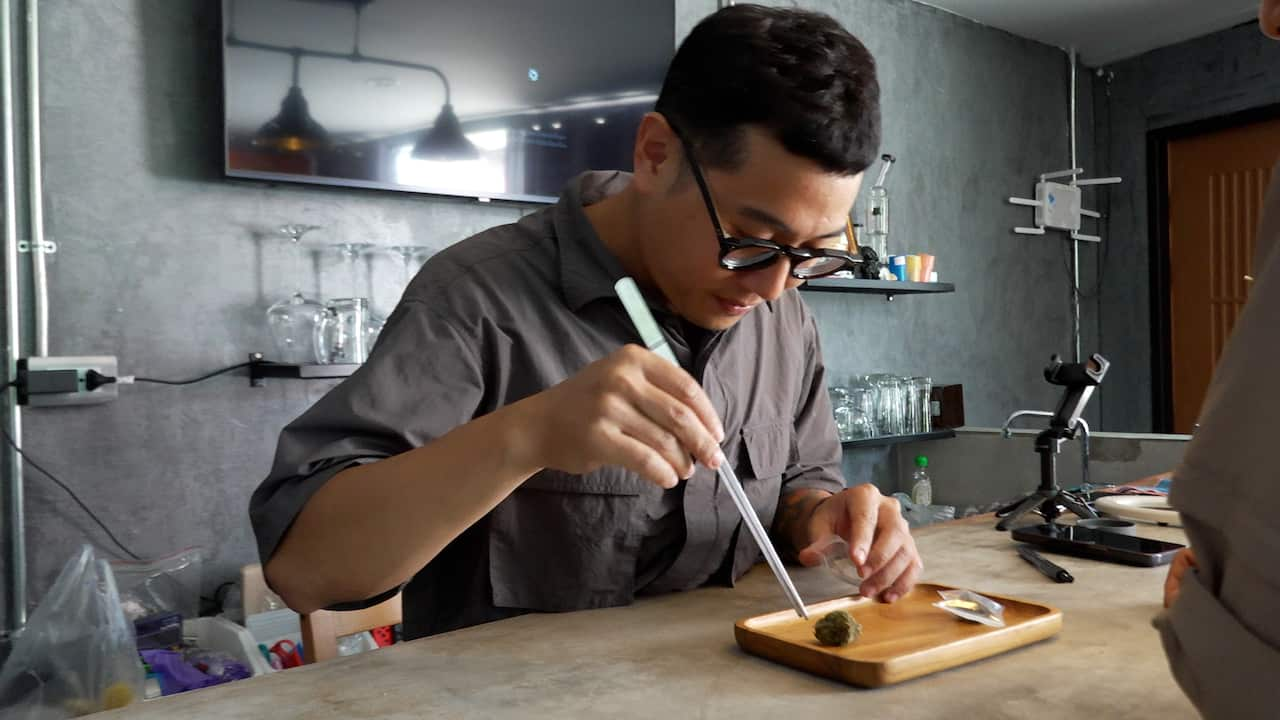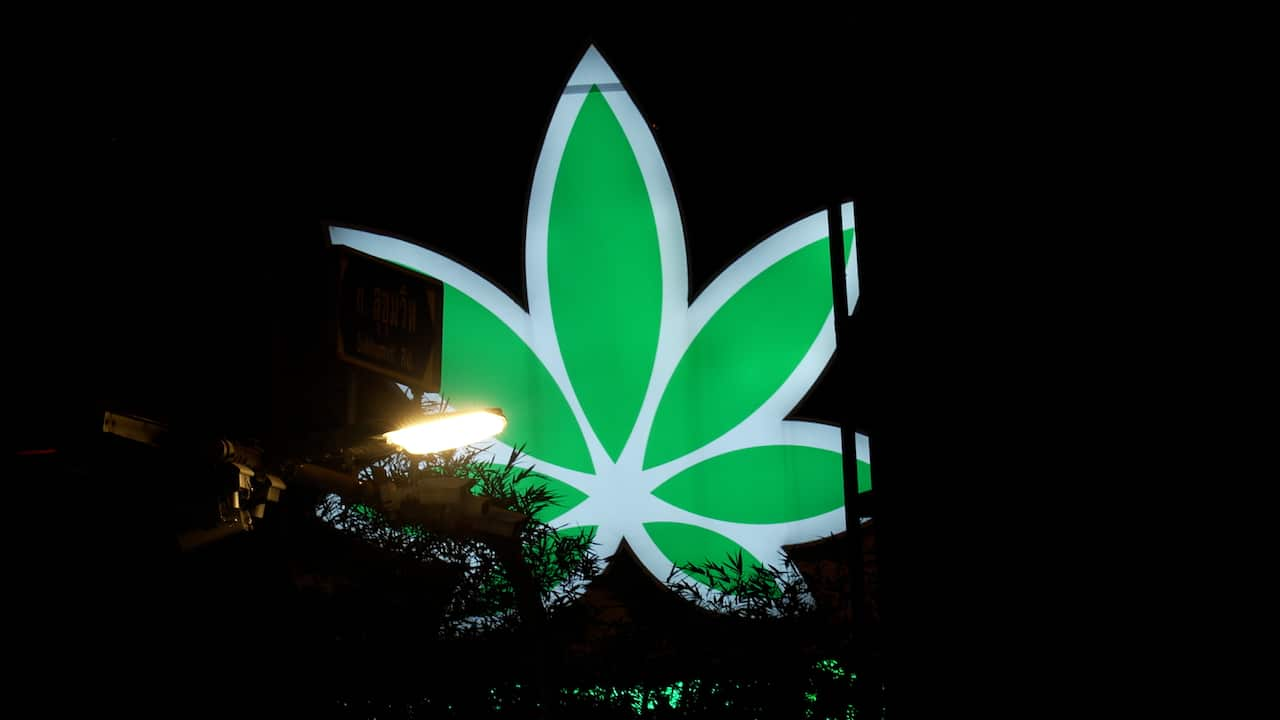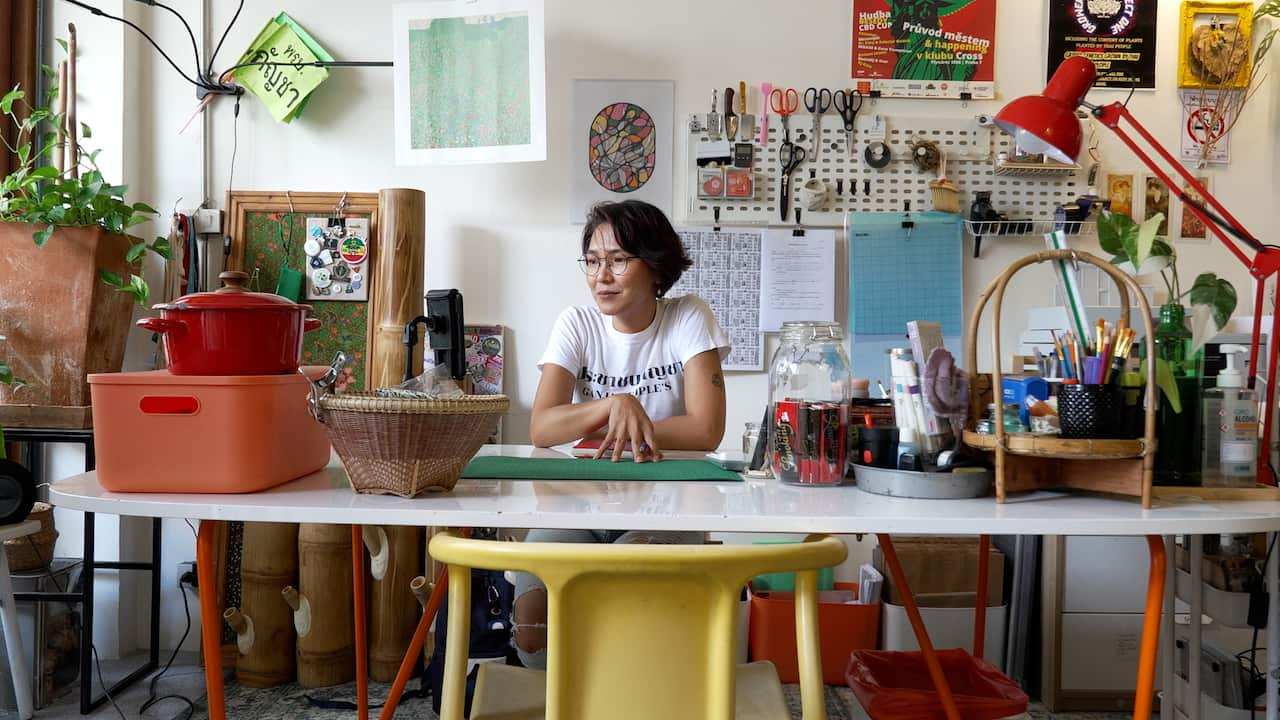For three years, downtown Bangkok has had a green glow.
Neon cannabis leaves light up practically every corner; an inescapable marker of what quickly ballooned into a billion-dollar industry.
More than 18,000 recreational marijuana shops sprang up, seemingly out of nowhere, when Thailand became the first Asian nation to decriminalise cannabis in 2022.
Their glory days may have been short-lived.
Last month, the government introduced new regulations restricting cannabis to medicinal use only, banning dispensaries from selling the drug to anyone without a prescription.

It's now flagging more rules to come; planning to cut shop numbers back almost 90 per cent to 2,000 and require each one to have a doctor on site.
"The customers are gone," cannabis shop owner Suradeth Wattanasoontornkul says. "They are scared. Everyone's business is going down."
"The shop opposite us just closed. They probably couldn't bear it anymore."
So far, there's no real evidence Thai authorities have started enforcing the new regulations, but Suradeth says the fear they will has scared most of his customers away.
He used to sell more than $7,000 worth of cannabis every month. Last month, it dropped to less than $500.
"We paid 5,000 baht ($240) to the government for a licence, but once we get that licence, they release new regulations and tell us the one we have is useless," Suradeth says.
"Sure, you can hire a doctor, but the cost is very high, and not every doctor wants to work in a cannabis shop."
The governmental feud fuelling recriminalisation
Thailand's health minister says the reforms are about improving public safety and addressing rising cannabis addiction, but analysts say they are also wound up in Thailand's latest political crisis.
In June, former Cambodian leader Hun Sen leaked the audio from a controversial phone call with Thai Prime Minister Paetongtarn Shinawatra, during which she appeared to make disparaging remarks about her own military's handling of the recent border crisis.
Her political allies in the Bhumjaithai Party, which was the main driving force behind cannabis decriminalisation, withdrew from the coalition in outrage.
Within a week, Shinawatra's Pheu Thai Party had moved to recriminalise the drug.
The reversal on cannabis "has a lot to do with coalition dynamics and coalition politics," political analyst Thitinan Pongsudhirak from Chulalongkorn University in Bangkok, says.
"The cannabis policy in Thailand is synonymous with the Bhumjaithai Party. It wanted to broaden its political base by decriminalising cannabis. So, suddenly, you had these cannabis shops mushrooming around Thailand, especially in Bangkok," he says.

The industry experienced near-instant economic success; its value was already estimated above $1 billion, with the Thai Chamber of Commerce predicting that number could rise to $1.8 billion by the end of this year.
Analysts believe tourists were behind much of the enthusiasm.
"I think there was a public backlash against it," Pongsudhirak says.
"The constituencies in favour of cannabis were limited; some vendors, proprietors, tourists, the hospitality industry. But the public sentiments at large are very sceptical. The Thais, being a predominantly Buddhist country, still frowned upon vices like this."
Thailand's public health minister Somsak Thepsuthin says he eventually wants to relist cannabis as a category five narcotic, which would result in tougher penalties for recreational use and possession, including jail time.
"We want to tell tourists they are welcome to enjoy Thailand's culture and nature, but Thailand should not be seen as a destination for recreational cannabis use," Thepsuthin recently said. "It affects children, causes nuisance from unwanted odours."
An industry moving underground
With the new restrictions widely unenforced and more regulations on the way, the industry has settled into a grey zone for now.
Those trying to keep their businesses open say there is little clarity and a lot of confusion.

"The health department is coming out with one set of information, the provinces are coming out with another set of information, when a lot of things are actually still on the drawing board," Kitty Chopaka from advocacy group Writing Thailand's Cannabis Future says.
"The shops in the provinces where the health officers happen to be strict, they are now either shut down, or are being told 'We suggest you shut down until the rules are more concrete, but if you don't shut down we will come and do a little inspection where we're then probably able to suspend your licence'."
Chopaka has been speaking with a network of dispensary owners almost daily as they try to navigate the changes.
They have consistently been reporting a drop in sales since the prescription rules came into effect, but they do not believe that correlates with a drop in usage. Many believe tourists are now buying the drug from other tourists instead of the dispensaries.
Some of the 18,000 registered shops have begun shutting down, while others are holding out to see if they might be one of the few that get to stay in business.
"A lot of the small businesses are going to get removed, the small farms, the ones where the husband is the grower, the wife is the trimmer, then maybe the mother-in-law is the seller at the shop. Those guys are not going to exist anymore," Chopaka says.
"I would say one small business is about ten lives you're dealing with. You've got the owner, the farms, the people who work in the shop, all of the production side of things. Each of them will have a family. And you times it by 18,000 — that's a lot of people."
She says: "That's the sad part."
For the latest from SBS News, download our app and subscribe to our newsletter.

